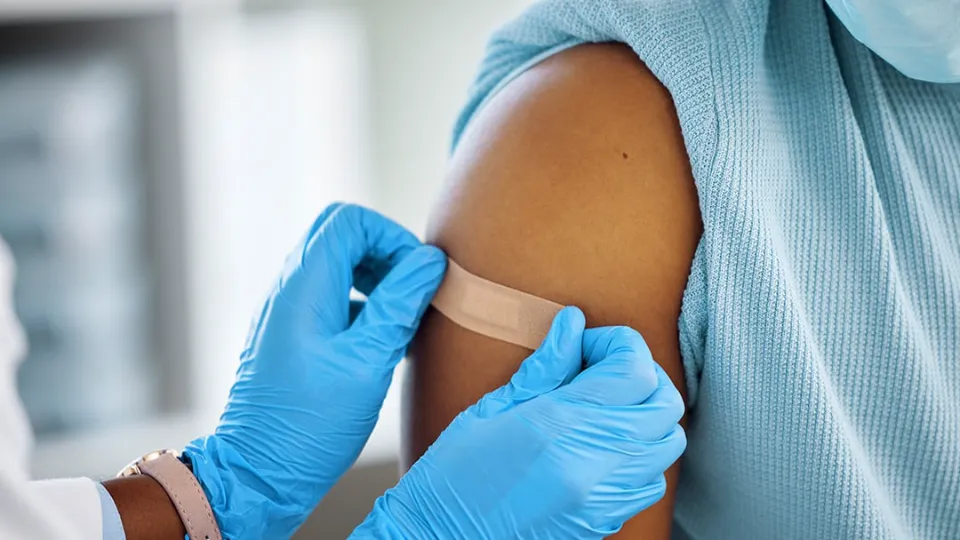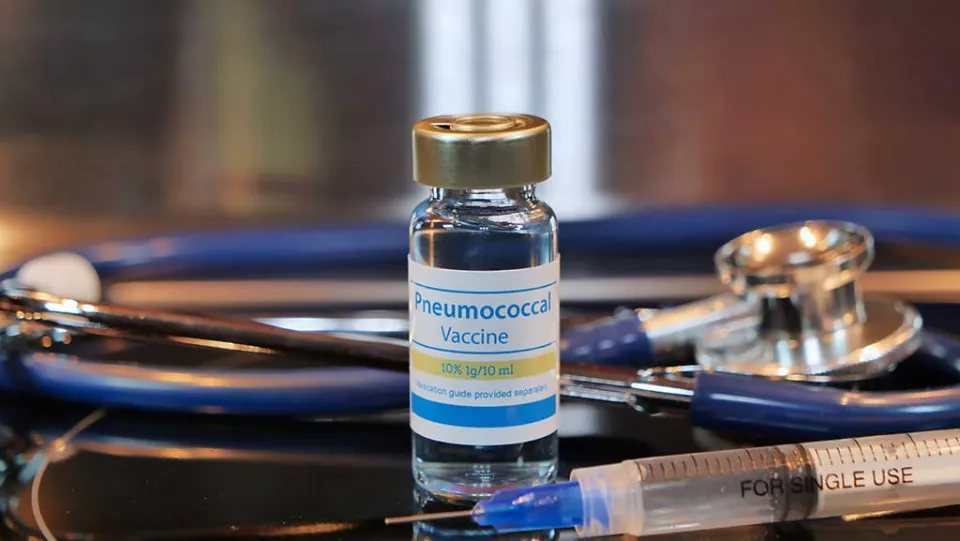The pneumonia shot is a vaccine that helps protect you against pneumococcal disease, or diseases caused by bacteria known as Streptococcus pneumoniae. So how many years is pneumonia shot good for? For many years, the shot can help shield you from pneumococcal disease.
Depending on your health, it may last for a specific amount of time. Pneumonia shot that is best for you will be determined by your doctor.
Read more: What to Eat in Pneumonia: 7 Recommended Recipes – Elder VIP
What is the Pneumococcal Shot?
The pneumococcal vaccination, also known as the pneumonia shot, offers a defense against serious pneumococcal infections. These infections, which can be serious or even fatal, are brought on by the Streptococcus pneumonia bacteria. The most typical of these is pneumonia, but others include meningitis and blood poisoning (sepsis).
Pneumonia is a serious illness that affects the lungs and results in coughing, fever, and breathing difficulties. It can be fatal and frequently necessitates hospitalization, especially for the elderly or those with compromised immune systems.
Although viruses, fungi, and bacteria can also cause the symptoms of pneumonia, they are less common. Because of this, both types of pneumonia vaccines work by producing antibodies that destroy pneumococcal bacteria. Your body can use these antibodies to quickly combat the bacteria strains that cause pneumonia once you’ve received the vaccination.

How Long Does Pneumonia Shot Last?
An adult’s lifetime should be covered by one dose of the pneumonia vaccine. Therefore, you usually won’t require a second dose. As a result, it is distinct from the annual flu shot.
The pneumonia vaccine may need to be repeated in some cases. People who are more susceptible to pneumonia and other related conditions due to underlying health issues will experience this. If another shot is necessary, your doctor will inform you.
One of the most common causes of pneumonia is an infection of the lungs with the bacteria Streptococcus pneumoniae.
Although they primarily affect your lungs, these bacteria have the potential to infect other organs of your body, including the bloodstream (bacteremia), the brain, and the spine (meningitis), and even result in sometimes fatal infections.
The pneumonia shot is especially recommended if you fall into one of these age groups:
- Younger than 2 years old: four shots (at 2 months, 4 months, 6 months, and then a booster between 12 and 15 months)
- 65 years old or older: two shots, which will last you the rest of your life
- Between 2 and 64 years old: between one and three shots if you have certain immune system disorders or if you’re a smoker
Make sure your young child is immunized because infants and toddlers are particularly susceptible to pneumococcal disease. But older adults are more at risk of having life-threatening complications from a pneumonia infection, so it’s also important to start getting vaccinated around age 65.
How Effective is the Shot?
Even if you’ve had a pneumonia shot, you could still develop the illness. But getting immunized can help to a great extent in preventing you from becoming gravely ill or experiencing complications from a pneumococcal infection.
According to the Centers for Disease Control and Prevention (CDC), at least one shot of At least 80% of newborns are protected from serious pneumococcal disease by PCV13. About 75% of adults older than 65 are protected from serious pneumococcal disease by the same shot.
The CDC also notes that PPSV23 is 60 to 70% effective at protecting people from serious disease caused by the 23 types of pneumococcal bacteria that the shot covers.
Newer vaccines include PCV15 and PCV20. We have a little less information about their effectiveness as a result.
In adults aged 50 and older, a phase 3 clinical trial of PCV15 revealed that it produced an immune response similar to PCV13 while providing protection from two additional types of pneumococcal bacteria. Similar results were found in a phase 3 clinical trial of PCV20 in adults 18 and older.
Who Should Get the Shot?
- People over age 65. Your immune system doesn’t function as well as it once did as you get older. An infection like pneumonia is more likely to be difficult for you to recover from. The shot should be administered to all adults over the age of 65.
- Heavy drinkers. It’s possible to have a compromised immune system if you consume too much alcohol. Your white blood cells, which fight infection, don’t function as well as they would under normal immune conditions.
- People who smoke. Long-term smoking may have damaged the tiny hairs that line the interior of your lungs and function as a germ filter. They are less effective at preventing those harmful microbes when they are damaged.
- patients recovering from serious illnesses or surgeries. You run the risk of developing pneumonia if you were in the hospital’s intensive care unit and required a ventilator for breathing support. The same holds true for people who have recently undergone major surgery or are recovering from serious injuries. You can’t ward off germs as effectively as you normally can when your immune system is compromised due to disease, trauma, or the recovery process following surgery.
- people with compromised immune systems. Your immune system may become weakened by a number of illnesses, making it less able to fend off infections like pneumonia. You are more likely to have a weakened immune system if you have heart disease, diabetes, emphysema, asthma, or COPD, which increases your risk of contracting pneumonia. The same is true for those who receive chemotherapy, those who have had organ transplants, and those who have HIV or AIDS.

When to Get the Shot?
Similar to the flu, there is no season for pneumonia. You can receive a pneumococcal vaccination at any time of the year if you and your doctor decide that it is necessary. If it’s flu season, you can even receive pneumonia shot concurrently with a flu shot as long as you administer each shot into a different arm.
Summary
A good way to aid in preventing complications brought on by bacterial infections is to get pneumonia shots. An adult’s lifetime should be covered by a single dose of the pneumococcal vaccine. Some people will require a booster dose of pneumonia shots.



